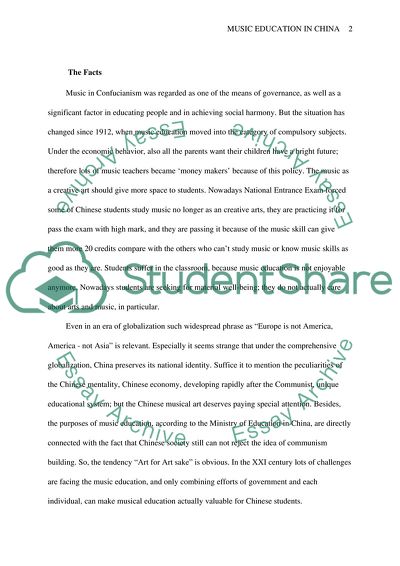Cite this document
(“Music Education for Chinese Pupils Dissertation - 1”, n.d.)
Music Education for Chinese Pupils Dissertation - 1. Retrieved from https://studentshare.org/music/1752623-under-the-economic-globalization-who-should-take-the-responsibility-to-make-the-music-education-actually-valuable-for-chinese-pupilsneed-to-change
Music Education for Chinese Pupils Dissertation - 1. Retrieved from https://studentshare.org/music/1752623-under-the-economic-globalization-who-should-take-the-responsibility-to-make-the-music-education-actually-valuable-for-chinese-pupilsneed-to-change
(Music Education for Chinese Pupils Dissertation - 1)
Music Education for Chinese Pupils Dissertation - 1. https://studentshare.org/music/1752623-under-the-economic-globalization-who-should-take-the-responsibility-to-make-the-music-education-actually-valuable-for-chinese-pupilsneed-to-change.
Music Education for Chinese Pupils Dissertation - 1. https://studentshare.org/music/1752623-under-the-economic-globalization-who-should-take-the-responsibility-to-make-the-music-education-actually-valuable-for-chinese-pupilsneed-to-change.
“Music Education for Chinese Pupils Dissertation - 1”, n.d. https://studentshare.org/music/1752623-under-the-economic-globalization-who-should-take-the-responsibility-to-make-the-music-education-actually-valuable-for-chinese-pupilsneed-to-change.


